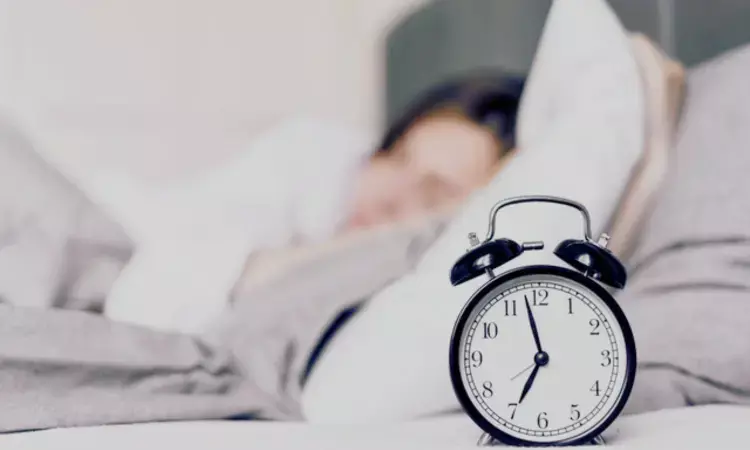- Home
- Medical news & Guidelines
- Anesthesiology
- Cardiology and CTVS
- Critical Care
- Dentistry
- Dermatology
- Diabetes and Endocrinology
- ENT
- Gastroenterology
- Medicine
- Nephrology
- Neurology
- Obstretics-Gynaecology
- Oncology
- Ophthalmology
- Orthopaedics
- Pediatrics-Neonatology
- Psychiatry
- Pulmonology
- Radiology
- Surgery
- Urology
- Laboratory Medicine
- Diet
- Nursing
- Paramedical
- Physiotherapy
- Health news
- Fact Check
- Bone Health Fact Check
- Brain Health Fact Check
- Cancer Related Fact Check
- Child Care Fact Check
- Dental and oral health fact check
- Diabetes and metabolic health fact check
- Diet and Nutrition Fact Check
- Eye and ENT Care Fact Check
- Fitness fact check
- Gut health fact check
- Heart health fact check
- Kidney health fact check
- Medical education fact check
- Men's health fact check
- Respiratory fact check
- Skin and hair care fact check
- Vaccine and Immunization fact check
- Women's health fact check
- AYUSH
- State News
- Andaman and Nicobar Islands
- Andhra Pradesh
- Arunachal Pradesh
- Assam
- Bihar
- Chandigarh
- Chattisgarh
- Dadra and Nagar Haveli
- Daman and Diu
- Delhi
- Goa
- Gujarat
- Haryana
- Himachal Pradesh
- Jammu & Kashmir
- Jharkhand
- Karnataka
- Kerala
- Ladakh
- Lakshadweep
- Madhya Pradesh
- Maharashtra
- Manipur
- Meghalaya
- Mizoram
- Nagaland
- Odisha
- Puducherry
- Punjab
- Rajasthan
- Sikkim
- Tamil Nadu
- Telangana
- Tripura
- Uttar Pradesh
- Uttrakhand
- West Bengal
- Medical Education
- Industry
Poor sleep quality worsens vertigo in patients with benign paroxysmal positional vertigo: Study

A recent study published in the Nature and Science of Sleep found that poor sleep quality significantly increases the severity of vertigo in individuals suffering from benign paroxysmal positional vertigo (BPPV), with anxiety and depression playing an important mediating role.
Based on baseline data from a large cohort of 1,056 BPPV patients in Northwest China, this study highlights the complex interplay between sleep disturbances and vertigo severity. Using the Pittsburgh Sleep Quality Index (PSQI) for sleep, the Dizziness Handicap Inventory (DHI) for vertigo severity, and various psychological assessment scales like the Hospital Anxiety and Depression Scale (HADS), Self-rating Anxiety Scale (SAS), and Self-rating Depression Scale (SDS), this study conducted detailed statistical modeling to understand the associations.
The study found patients who reported poor sleep were more than twice as likely to experience severe vertigo symptoms when compared to the individuals with adequate sleep (Odds Ratio: 2.024; 95% CI: 1.571–2.608). Moreover, there was a clear dose-response relationship; as PSQI scores rose above 7, which indicates worsened sleep quality and increased vertigo symptoms in parallel.
The mediation analyses revealed that psychological distress significantly influenced the link between sleep and vertigo. Anxiety accounted for 28.5% of the mediating effect, depression for 38%, and the HADS scale as a combined psychological index explained 37.7% of the association. This means that sleep quality does not just affect vertigo directly, it does so largely through its impact on the mental health of patients.
This research explained that the PSQI total scores showed statistically significant correlations with all three subscales of the DHI (physical, emotional, and functional), which suggests that sleep disturbance affects every aspect of the vertigo experience. The study authors highlight that treating sleep problems and providing psychological support could play a central role in improving outcomes for BPPV patients. Conventional treatment for BPPV often focuses on physical maneuvers and balance therapy, but this new evidence suggests a more holistic approach could be more effective.
Integrated care strategies that include cognitive behavioral therapy for insomnia (CBT-I), relaxation training, and screening for anxiety and depression could help reduce both vertigo and its psychological burden. Overall, this study is among the first to robustly quantify the mediating role of mental health in the sleep–vertigo connection in BPPV. The results illuminate the importance of multidisciplinary intervention, combining sleep hygiene practices and psychological care in the routine management of BPPV.
Reference:
Xing, J., Xu, X., Shan, H., Wu, J., Liu, P., Shi, W., Ren, P., Liu, J., Huang, Y., & Mi, B. (2025). Association between sleep and vertigo severity in benign paroxysmal positional vertigo: Mediating role of psychological factors. Nature and Science of Sleep, 17, 1477–1490. https://doi.org/10.2147/nss.s529355
Neuroscience Masters graduate
Jacinthlyn Sylvia, a Neuroscience Master's graduate from Chennai has worked extensively in deciphering the neurobiology of cognition and motor control in aging. She also has spread-out exposure to Neurosurgery from her Bachelor’s. She is currently involved in active Neuro-Oncology research. She is an upcoming neuroscientist with a fiery passion for writing. Her news cover at Medical Dialogues feature recent discoveries and updates from the healthcare and biomedical research fields. She can be reached at editorial@medicaldialogues.in
Dr Kamal Kant Kohli-MBBS, DTCD- a chest specialist with more than 30 years of practice and a flair for writing clinical articles, Dr Kamal Kant Kohli joined Medical Dialogues as a Chief Editor of Medical News. Besides writing articles, as an editor, he proofreads and verifies all the medical content published on Medical Dialogues including those coming from journals, studies,medical conferences,guidelines etc. Email: drkohli@medicaldialogues.in. Contact no. 011-43720751


